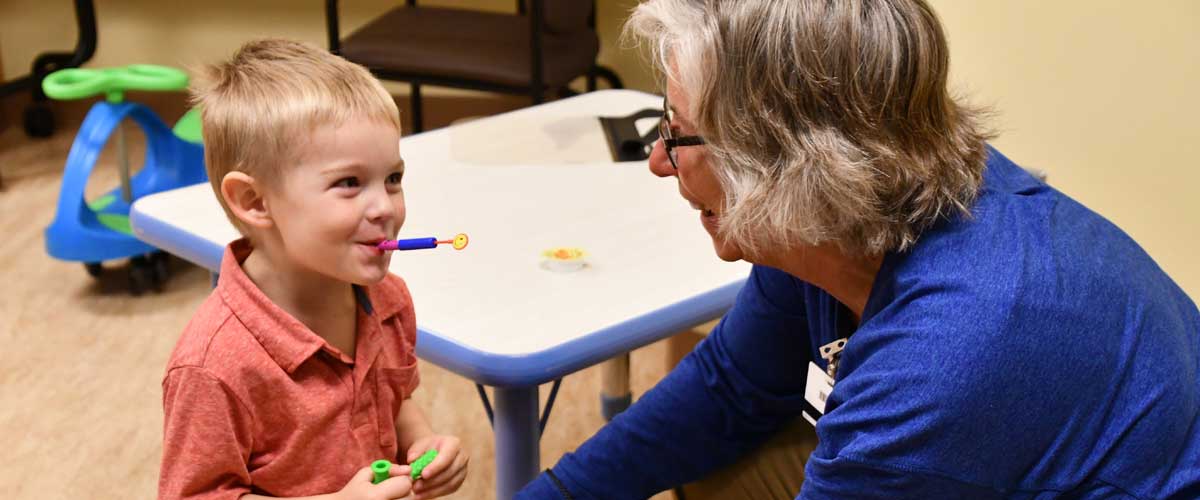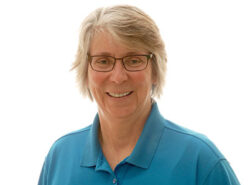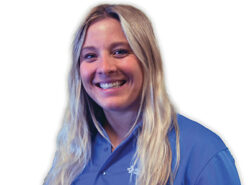Speech-language therapy is the treatment of disorders that affect one’s speech, language, cognition, voice, or swallowing with the goal of improving daily function and communication. Taking advantage of speech therapy can help you or your loved one regain skills, recover from injury, return to function, and learn effective strategies to maintain your highest potential.
Speech and Language Therapy
Stroke, traumatic brain injury, brain tumors, or other neurological diseases such as Parkinson’s disease or ALS (Lou Gehrig’s disease) may result in impairment of speech or swallowing. Young children may also have delayed speech or language development. If you are experiencing difficulty with word-finding, slurred speech, understanding others, or overall cognitive (disorientation, memory, problem-solving), speech therapy can offer treatments to help stimulate areas of the brain that have been damaged.
Swallowing Disorders
Swallowing disorders can lead to more serious health complications, including weight loss, dehydration, aspiration, pneumonia, and malnutrition. At Sioux Center Health, speech therapy and radiology can perform videofluoroscopy, an X-ray of the head and throat captured on video in real-time while a person is eating and drinking, to evaluate the swallowing mechanism.
Common Treatments
Take advantage of a variety of speech-language therapy treatments, including:
- Dysphasia or swallow management to retrain chewing, sucking and swallowing
- Cognitive therapy to improve attending, memory, problem solving and sequencing skills
- Speech therapy to improve pronunciation of sounds for intelligibility
- Language therapy to help restore both receptive and expressive language skills
- Voice therapy to obtain use of optimal voice and eliminate abuse
Patty Halse has special certification in SOS, a feeding program for children, VitalStim neuromuscular electrical stimulation, to enhance swallow management in adults and Dementia and the Capacity for Learning and certified in LSVT LOUD. She has a special interest in dementia and neurological diseases that affect one’s communication and swallowing, taking several advanced courses in these areas.
Carly Sayler has a special interest in pediatric therapy specifically in the area of speech sound disorders and expressive/receptive language disorders. She has a passion for working with children of all ages with varying diagnosis.



